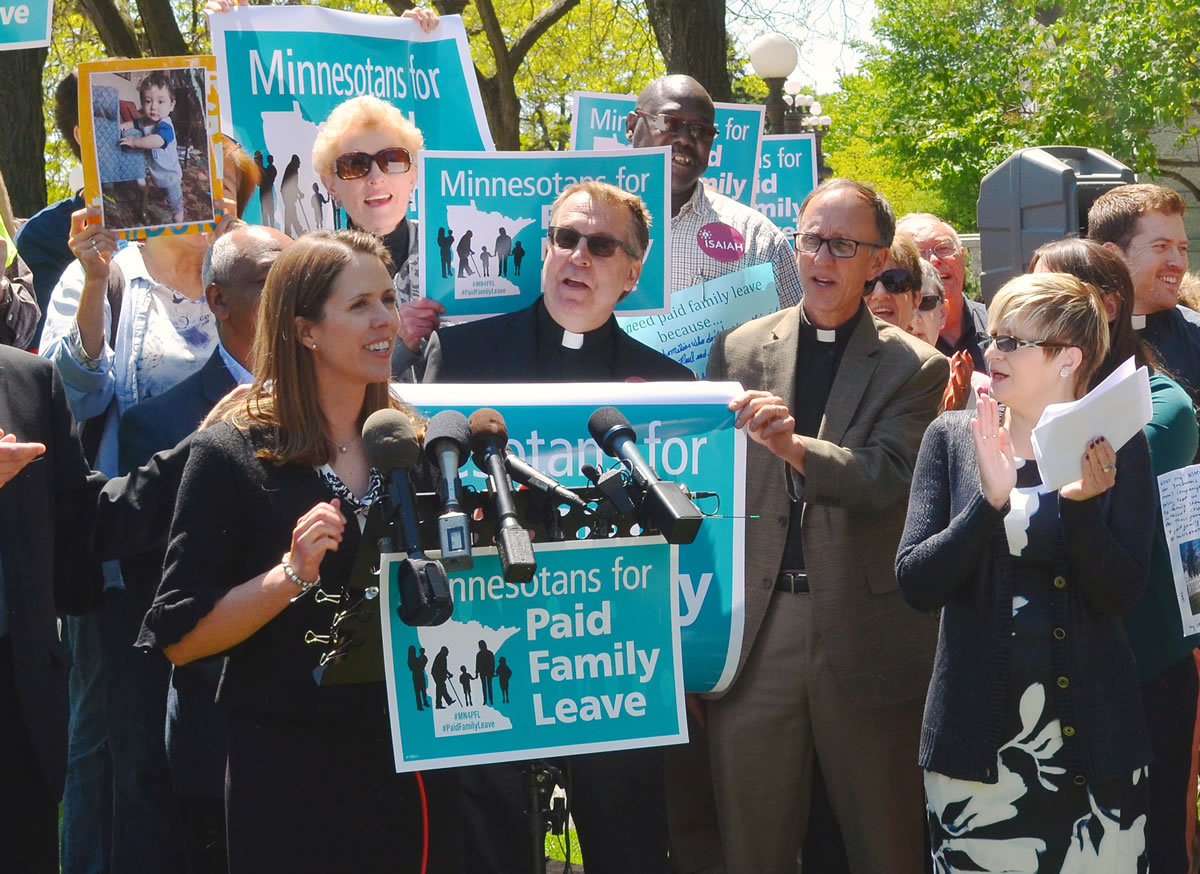

Share
Leaders of a variety of faiths surrounded Pastor Matt Bersagel as he called on the Minnesota House to address paid family leave legislation in the waning days of the 2016 session.
“We’re asking for open hearts,” the pastor of Crown of Glory Lutheran Church in Chaska intoned. “We’re asking for action.”
Minutes later, the faith leaders’ hopes fell flat when House Speaker Kurt Daudt, R-Crown, declined to meet with the group. But Bersagel, and the scores of faith, union and community members who joined him at a rally Tuesday near the state Capitol, vowed to push on.
They were joined by Governor Mark Dayton, Lieutenant Governor Tina Smith and several DFL legislators.
“All we need is for the leadership of the Minnesota House to recognize what all of us do – this is a moral responsibility,” said Dayton.
Minnesota AFL-CIO President Bill McCarthy said, “Everyone should have the ability to take care of a sick family member without worrying about paying the bills.”
The AFL-CIO and its union affiliates, independent unions such as MAPE, the faith group ISAIAH, the Children’s Defense Fund and numerous other organizations are part of a coalition backing legislation authored by state Senator Katie Sieben, DFL-Cottage Grove.
Sieben’s bill sets up a system, similar to unemployment compensation, with a state-administered fund to pay workers up to 80 percent of their wages for a leave that lasts up to 12 weeks. The program is not for the occasional sick day, but rather mirrors the federal Family & Medical Leave Act, which provides up to 12 weeks of unpaid leave to workers for birth, adoption and serious health conditions facing them or a family member.
A payroll tax of $1.70 per week on both employers and employees would fund the leave benefit.
Speakers at Tuesday’s rally described the difficulties in caring for a sick child or spending time with a parent who was dying when their only option was taking leave without pay.
Currently, more than a quarter of all family and medical leaves in Minnesota are without any compensation during leave.
Significantly, certain groups lack access to paid family and medical leave, including 46 percent of low-wage workers, 42 percent of African-American workers and 39 percent of young workers.
The legislation would address the need of low-wage workers by paying up to 80 percent of their wages for qualified leaves. Other workers would receive anywhere from 55 to 66 percent of their wages.
The state Senate passed Sieben’s bill and Dayton has said he would sign it. But the House has not conducted even a hearing on the measure.
Rep. Peggy Flanagan, DFL-St. Louis Park, said she was frustrated by the lack of action in the House. “We can’t wait any longer,” she told the crowd.
By law, the Legislature must adjourn its regular annual session next Monday, May 23.

